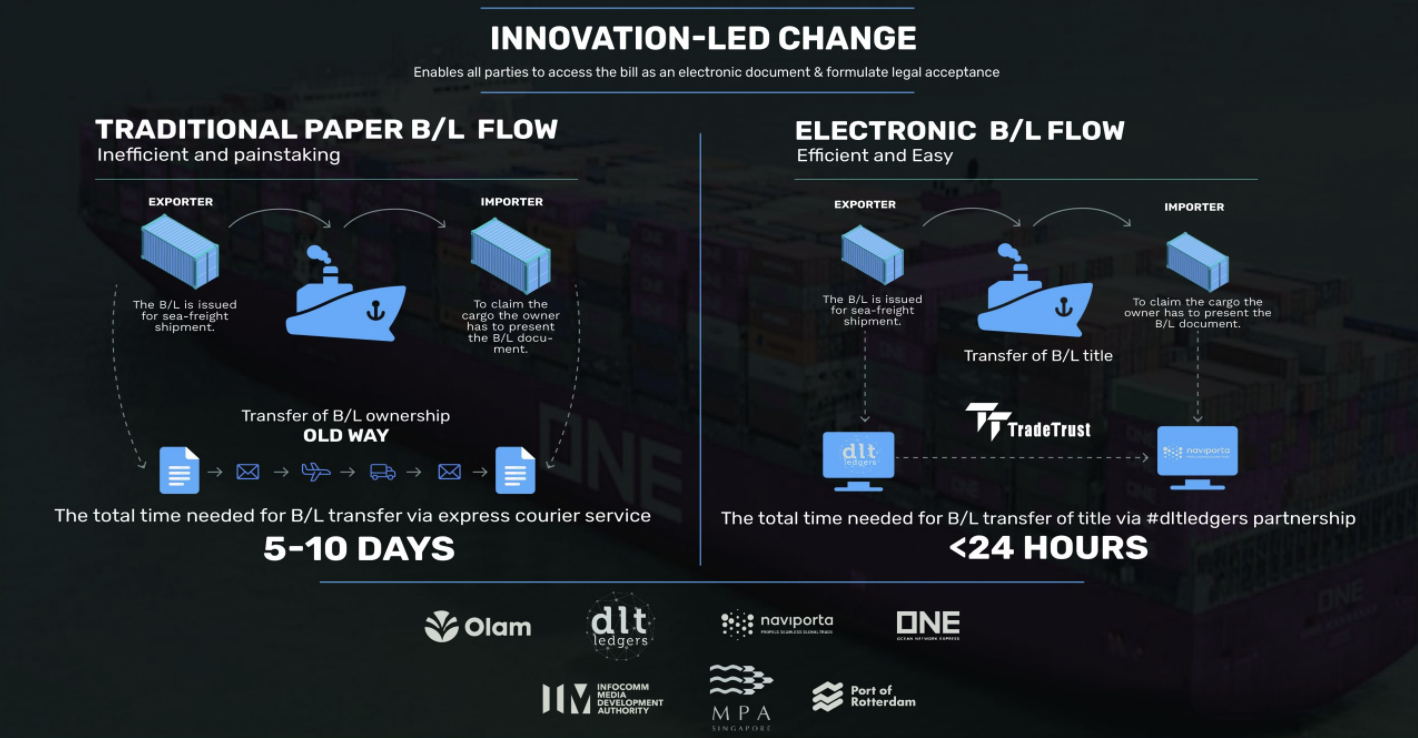Singapore and the Netherlands have collaborated since 2019 to explore electronic bills of lading (eBL) on the Europe-Far East trade lane where Singapore and Rotterdam are two major transhipment ports.
This trial demonstrated that an eBL issued by one platform could be verified and processed by another digital trade platform, according to an announcement by the Port of Rotterdam Authority.
“Before we can start making extensive use of this new option, countries will need to adapt their legislation to accept an electronic bills of lading (eBL) as legally valid in addition to conventional hard copies,” said the major Dutch port.
Singapore has already implemented this change, while the Netherlands is still working to develop this innovation via various pilot projects, in partnership with industry partners, such as the Dutch Blockchain Coalition, Spark! Living Lab and 2Tokens.

The results of the most recent trial show that digital transfer of ownership by means of an eBL saves time and improves efficiency, according to the PoR Authority.
“Our industry partners Ocean Network Express (ONE) and Olam were able to cut end-to-end documentation processing time from an average of 6 to 10 days, using hard copy documents, to less than 24 hours, using the eBL for the digital transfer of ownership,” highlighted the Port of Rotterdam in its statement.
In the meantime, the Digital Container Shipping Association (DCSA) estimates that a 50% adoption of eBL within the sector could yield savings of more than US$4 billion per year.
This latest trial was performed across the Singapore-based dltledgers, an independent fintech platform for trade and supply chain digitisation and finance in blockchain, and Rotterdam-based Naviporta platform, which facilitates the transparent, efficient and safe exchange of logistics and financial data, and was supported by Infocomm Media Development Authority’s TradeTrust digital utility, which is based on open standards.
 Hotline: 0944 284 082
Hotline: 0944 284 082
 Email:
Email: 


 VN
VN